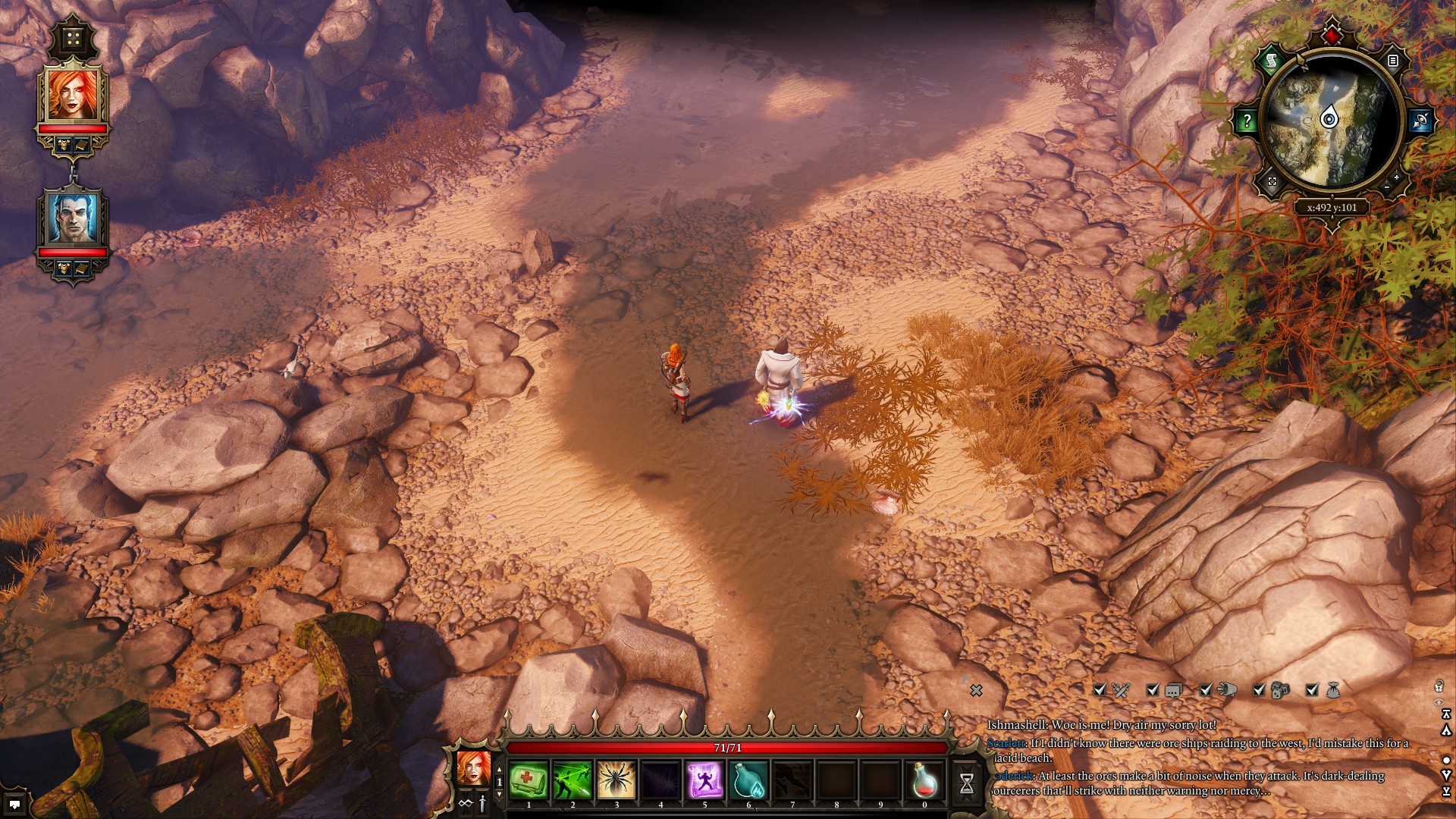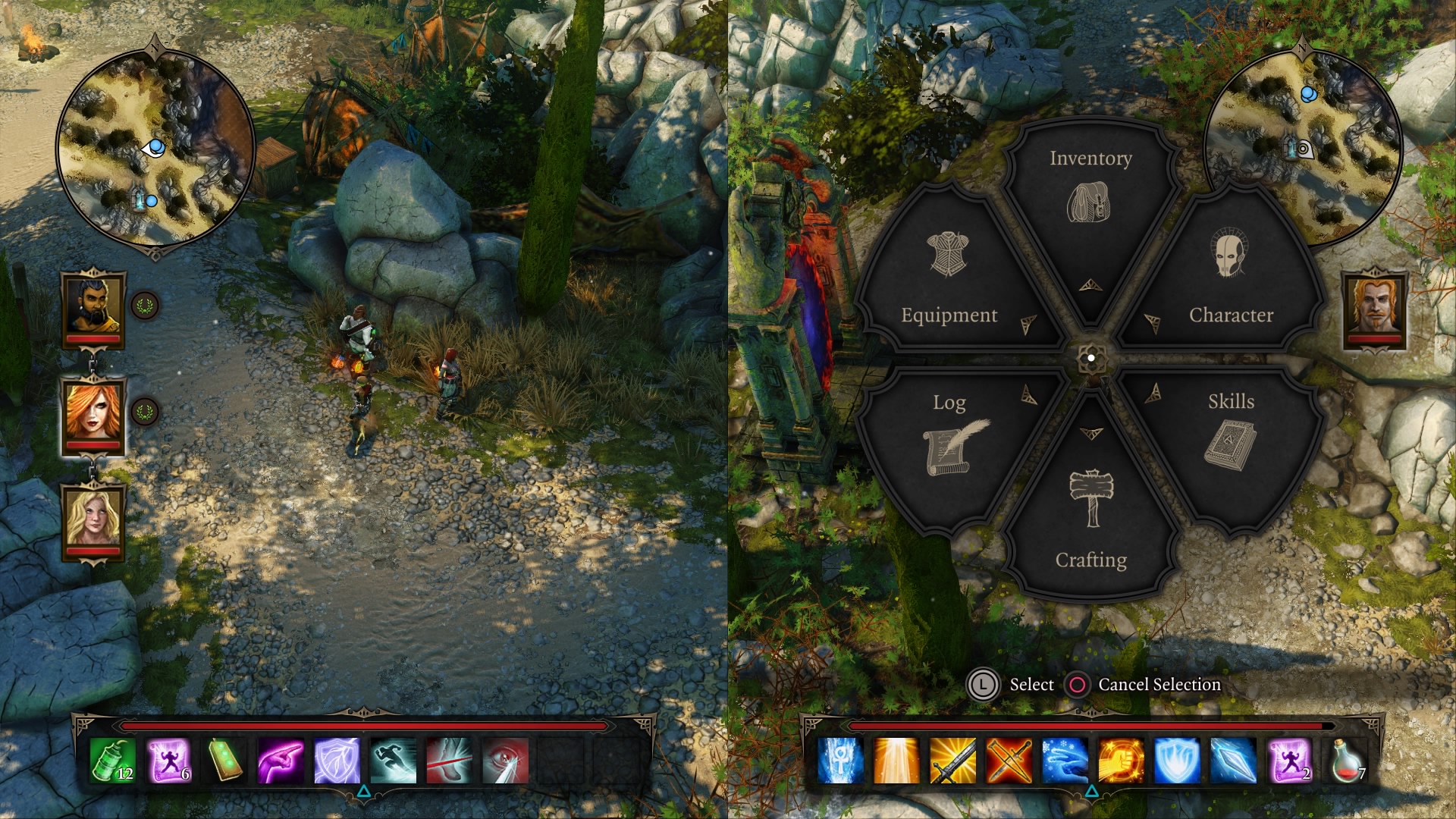
For any newcomers, those improvements are nice and may make the game more appealing, but the real hook now is the game’s accessibility. Previously, the game had a bit of a barrier to entry; players with previous cRPG experience so they were (at least conceptually) familiar with the game’s crafting, equipment, levelling, and combat system had a far easier time than those that didn’t. While you could eventually suss everything out with enough time spent experimenting and saving before every battle, a little bit of help would have gone a long way. That help is now in the Enhanced Edition with tutorial tips, which pop-up on the screen within the appropriate context. These tips aren’t going to give you all the answers, but they at least point you in the right direction enough to make it a bit clearer why you would want to pick up certain items and combine them. This is still an open-world game, after all, that gives you almost absolute freedom to go anywhere and interact with anything, so the tips aren’t going to be able to cover everything.
The other feature that makes the game more accessible is the added controller support. Despite growing up on PC games, I find myself wanting to play games more and more using a controller. No doubt some of that is due to a lack of interest of having to memorize 20 different keyboard shortcuts, a concept that does demur some folks (understandably) from getting into PC gaming. While Divinity isn’t as bad as that, playing the game with a controller just feels a bit better. Pressing the right trigger brings up a radial menu of all the various, pertinent in-game menus, i.e., inventory, equipment, quest log, and character sheet, while the left trigger allows you to switch characters. Character and camera control is handled by the left and right sticks, respectively, while the d-pad is reserved for certain special commands, such as attacking the ground and enabling “sneak” mode. While I’ve had a couple moments of confusion with bringing up a particular menu or accidentally attacking the ground instead of moving during combat, the controller support feels well implemented and has become my preferred way to play.

The addition of controllers brings with it another feature: couch co-op play. It was always an interesting point to me that when the developers of the game were first talking about their inspiration for it, they spoke of how they wanted to make an RPG to play with friends/significant others in the same room. Yet the initial release only supported LAN and online play, meaning your friend/significant other needed to have his/her own PC. Now that the game has finally realized that vision of playing together in the same room, I can’t imagine playing this any other way. There is always something special when it comes to the kinds of interactions you have when gaming with friends when they are right there next to you versus on the other end of a Skype call; there’s more energy and perhaps even a little more camaraderie. For a game like Divinity, where playing co-op is all about two people roleplaying their way through an adventure, that energy is needed to make the 15th hour of the game as fun as the first.
The best summation I can give to all of this is that Divinity: Original Sin was a game I could easily recommend to any cRPG fan looking for a quality cRPG to play. Divinity: Original Sin - Enhanced Edition is a quality game I can recommend to anyone.